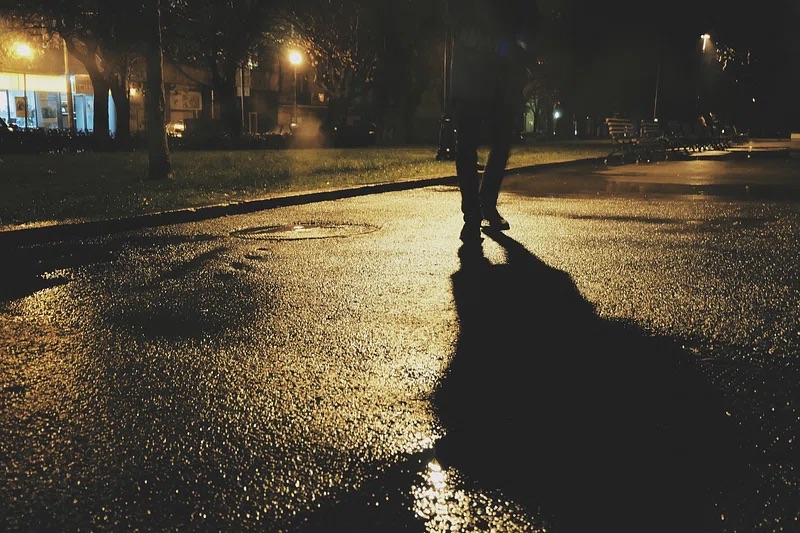
Flare: Your Student Safety Companion
Our sense of safety and security is something we often take for granted until it is taken from us. In the blink of an eye, spaces previously comfortable and familiar can be transformed into strange and dangerous territories. University campuses and communities are no different.
The irregular schedule and busy life of a student often sees us working anti-social hours and travelling alone. Leaving the library late and walking home after dark is a regular occurrence, and 9 times out of 10, we encounter no problems.
But what about that 1 in 10 instance where something does go wrong? What then?
Seeking to answer that question is Gabriel Brown, Morgan Saville and Geno Racklin Asher, a team of recent graduates from Cambridge University’s Kings College.
Together, the team created Flare, an emergency SOS app, which allows users to instantly send a pre-customised emergency text to trusted contacts by simply swiping or pressing the Flare notification on their lock screen.
The app has been designed with students in mind and aims to improve safety on and around campuses. In light of this, it is important to take a look at the figures supporting the push for additional protective measures.
Data collected by the Office for National Statistics reveals that for the period between March 2018 and March 2020, students were more than 3 times more likely than the average person to experience sexual assault. The Unsafe Spaces report 2020, an investigation into sexual abuse at English and Welsh universities, estimated that on average, 50,000 incidents of sexual abuse and harassment occur at universities each year. Whilst data most commonly records crimes of a sexual nature, other crimes, such as theft, also largely impact student areas.
Although statistics somewhat reveal the extent to which students are at risk, they do not accurately reflect the whole picture. Research by NUS in 2019 found that only 14% of students who experienced sexual misconduct at university reported the incident, and of this number, only one in five told their college or university.
Flare stands out as a valuable safety-companion for students due to its accessibility and convenience, and this has not gone unnoticed by universities across the UK. Societies and student unions are sharing in Flare’s mission to make campuses safer by partnering and sitting on Flare’s Advisory Board, which will meet regularly to discuss student safety on campus how Flare can help.
Amongst the app’s partners are Leeds’s very own, University Commuters’ Society, and the Society Against Sexual Harassment and Assault (SASHA.) The Leeds University Commuters’ Society supports students who live at home or commute into university, aiming to foster a sense of community and accessibility. Flare represents an important opportunity to enhance student safety when getting to and from campus, and CEO and Co-Founder Gabriel Brown believes, “that Flare’s technology will play a crucial role in ensuring that commuter students are secure and supported.”
SASHA advocates for increased awareness of sexual assault and rape culture at universities, by providing a safe space for students to share their experiences and to meet a community of survivors.
SASHA’s Secretary, Kay Corbin, spearheaded the society’s partnership with Flare, and explained: “SASHA is incredibly excited to begin working with Flare, a company whose remarkable dedication to enhancing personal safety perfectly complements our mission. This partnership represents a pivotal moment for us, as it strengthens our ability to serve and protect our student community. Flare’s innovative solutions and proactive approach align seamlessly with our commitment to student support. We are confident that this collaboration will help us foster a culture of safety and well-being within the student community, setting new standards for student security.”
Flare can of course be used in conjunction with calling 999, but what makes it unique is its ability to act as a middle ground between feeling threatened and contacting the emergency services. By allowing users to let trusted contacts know of their location, it is an extremely valuable tool in instances where the police may not be needed, but the user feels at risk.
Discussing the collaboration between Flare and universities across the country, Gabriel, emphasised that, “Flare isn’t just an app; it’s a movement that is all about creating safer communities. We’re thrilled to see the positive response from the student community, and we are committed to continuously enhancing Flare to champion safety in university communities.”
Unfortunately, feeling unsafe at and around university is a shared experience for many students, but the partnerships between Flare and the Leeds University Commuters’ Society and SASHA signify a positive step in the journey towards making our campus and city a safer place for everybody. The Flare app can be download for free on both iOS and Android:
iOS: https://apps.apple.com/gb/app/flare-stay-safe/id6461013913
Android: https://play.google.com/store/apps/details?id=cx.cause.emergency
Or you can visit the Flare website for further information: www.flare.cx
For more information on the Leeds University Commuters’ Society or SASHA, visit:
https://engage.luu.org.uk/groups/Q93/commuters
https://sashaleedsuni.wixsite.com/sashaluu/about
Or find them on their social media @leedscommuters @sasha_uol

